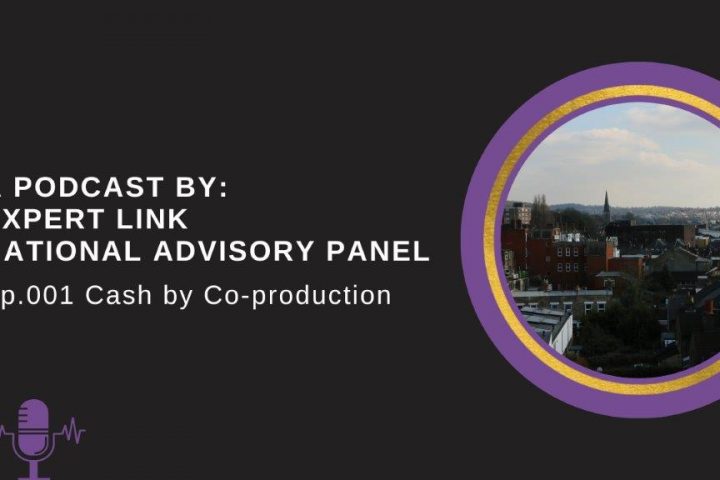We must remove the employment barriers faced by people with lived experience of homelessness.

How can we end homelessness in the UK?
There are many flavour-of-the-month initiatives, innovative theories and new-found evidence based approaches to ending homelessness. Lots of complicated academic work, fancy project management, pilots and monitoring forms.
For us, the answer is simple. It's about people. Give people a voice. Give people a choice. Realise people’s aspirations.
We do recognise the need for real evidence; real solutions based on real experience. But where responses do not recognise voices, choices and aspirations, people remain trapped by a system who's purpose is to support. History repeats itself.
“I was a strong willed person, but I was made to feel like I had no choice over how my life should be.” - Member of National Advisory Panel
It was like these people owned you.” - Member of National Advisory Panel
“You’re voice was worthless.” - Member of National Advisory Panel
Breaking the cycle
So how do we ensure that an approach that fosters voice, choice and aspiration is adopted throughout the homelessness and related sectors?
We can begin by ensuring that people working alongside those experiencing homelessness can foster trust and relationships, have knowledge and understanding, and can adapt and problem solve.
Luckily, these crucial skills are found in abundance amongst those with lived experience of homelessness, those who have walked the walk, those who have had successes and challenges in accessing the right support at the right time.
“Somebody that’s got lived experience working, they can build up pretty quickly a rapport up, and trust, as well, so you can support somebody. I suppose it’s that relationship. Someone who recognises from your past, they can see where you are now and I think that can reflect on them, wanting to be in the same kind of place you are now, wanting that support, knowing what support you’ve been through, and wanting your guidance.” - Member of National Advisory Panel
“Gift of the gab. You’ve got to have the gift of the gab I think. Quick solutions, you’ve got to be good at finding quick solutions. And knowing, having the knowledge to make decisions with them, on their terms. That’s a big things, it’s all about them.” - Member of National Advisory Panel
“Very good at problem solving and not overcomplicating things. And that’s what I always felt worked well for me…. A lot of the service users would want to continue to work with me, it wasn’t because I told the best jokes or I was the best looking, even though that was true, it was because they felt that I was very honest with them, in regards to being realistic, but also I didn’t overcomplicate things. They could come to me and things would get done without fobbing them off. For a lot of clients, there is a window of opportunity, and it’s not 8 hours, they want something, and they want it done as quick as possible, and I think that’s a skill in itself.” - Member of National Advisory Panel
Valuing what's needed
“We are up against a system that doesn’t like the way we work. We are up against a system that says ‘When you come through that door you better behave. If you dare raise your voice you’re out that door.’ With me, screaming is fine, as long as you don’t hit me!” - Member of National Advisory Panel
But surely support and services do foster this way of working? Unfortunately, this is not always the case.
Much support stems from monitoring forms based on deficits and negative experiences. Workers are driven to meet outcomes set by external expectations rather than individual needs. Empathy is condemned instead of celebrated.
The very skills and talents that are needed to work alongside people and make positive change are discouraged.
The glass ceiling
In our experience there is a glass-ceiling for people with lived experience of homelessness. As well as ways of working being discouraged, there is a stigma around what people can achieve and what roles people can take.
“To me, it seems to be there is a glass ceiling for people with lived experience. I can think of only a few people that have got to upper management. Most people are kept on the ground floor, they’re not taken as seriously, they’re not seen as useful or management potential.” - Member of National Advisory Panel
“I’ve gone to strategic meetings where there’s external partners. And it really did knock my confidence. I’m new in the role, went there, and there were people, I’m a frontline worker, I’ve got lived experience, I feel like I’m pretty good at what I do. I literally came out of that meeting feeling that no one appreciated my view point. There were people in there, there were directors, very influential people in [ ], who just dismissed me… I remember coming out of there literally questioning whether I was in the right role. I genuinely thought, ‘Why have I even tried this?’ All that effort to get myself into a position where I think I would be heard, and it was like, “What do you know, what do you know?” It was disheartening.” - Member of National Advisory Panel
“There’s imposter syndrome... It doesn’t help when you go into meetings, and you feel like a token gesture, a tick box.” - Member of National Advisory Panel
#HomelessNotHopeless
We need to change perceptions to help remove the glass ceiling. Perceptions of what should be valued, and what people can achieve when stigma and other barriers are removed.
For our part, throughout December, we will be raising awareness of the abundance of skills and talents within our community. We hope to inspire others to do the same.
We encourage everyone to use the hashtag #HomelessNotHopeless to share what this means to you. And please visit this page and find out what people are sharing with us.
Together, we can change attitudes and make a difference.



